HOW SERIOUS IS A CONCUSSION?
 The Centers for Disease Control estimate that there are up to 3.8 million concussions sustained each year.
The Centers for Disease Control estimate that there are up to 3.8 million concussions sustained each year.
- One out of every 10 athletes will experience a concussion during any given sport season.
- Less than 10% of concussions result in a loss of consciousness (seeing stars, blacking out, etc.).
- 78% of all concussions occur during games, as opposed to taking place during practices.
- One out of 2 athletes DO NOT report feeling ANY symptoms after receiving a concussion.
- The consequences of living life with undiagnosed and untreated concussions can range from suboptimal performance to the development of Alzheimer’s disease, dementia, and CTE (chronic traumatic encephalopathy.)
WHAT IS A CONCUSSION?
A concussion causes damage to the brain. A concussion is a traumatic brain injury. It changes the way that a brain functions. Concussions are relatively common, particularly for individuals who play a sport that involves contact with another person or object, such as football or hockey. Though concussions often result from a blow to the head, they can also result from severe shaking of the head and upper body. Since every concussion causes at least some injury to the brain, it requires time and rest to heal properly. Most concussions are mild, and people usually recover fully. Sometimes a concussion is not obvious at the time it occurs, so people don’t realize that they have experienced it until much later, if at all.
SIGNS AND SYMPTOMS OF CONCUSSION
The effects of a concussion are usually temporary but can include headaches and problems with concentration, memory, balance and coordination. Because a healthy brain is necessary to so many areas of a person’s functioning, a more serious or lasting concussion injury may affect an individuals’ eye movements, balance, spatial orientation, speed, accuracy, endurance, reaction time, thoughts, emotions, and overall health.
Common symptoms after a concussive traumatic brain injury are headache, loss of memory (amnesia) and confusion. The amnesia, which may or may not follow a loss of consciousness, usually involves the loss of memory of the event that caused the concussion.
Signs and symptoms of a concussion may include:
• Headache or a feeling of pressure in the head
• Temporary loss of consciousness
• Confusion or feeling as if in a fog
• Amnesia surrounding the traumatic event
• Dizziness or “seeing stars”
• Ringing in the ears
• Nausea
• Vomiting
• Slurred speech
• Delayed response to questions
• Appearing dazed
• FatigueSome symptoms of concussions may be immediate or delayed in onset by hours or days after injury:
• Concentration and memory complaints
• Irritability and other personality changes
• Sensitivity to light and noise
• Sleep disturbances
• Psychological adjustment problems and depression
• Disorders of taste and smell
Treating the root cause of your condition, not just your symptoms, is the fastest way to recovery and is the best way to obtain optimal health and wellness.
How Does Dr. Burdorf Treat Concussions and Traumatic Brain Injuries?
Dr. Burdorf will insist on a complete neurological examination with imaging to determine the underlying cause of your health issues. In addition, blood testing is often required.
Understanding that each patient is unique, in each case Dr. Burdorf will use a variety of approaches and different types of therapies in order to achieve the desired results. He is also equipped to identify and treat symptoms long after the original injury occurred.
Dr. Burdorf is trained to know when to incorporate Cognitive Behavioral Therapy to address underlying social and stress responses associated with concussions and brain injuries. He is also trained to test for underlying metabolic issues such as anemia, gut infections, dysglycemia, hormone and thyroid disorders. These issues can exacerbate the inflammatory cascade, which is occurring in the healing brain. It is common for Dr. Burdorf to co-mange your condition with doctors of other specialties to achieve the best practice goals for your recovery.
Call Dr. Burdorf’s office to schedule a consultation if you like what you read:480-951-5006 or click to schedule an appointment online .
